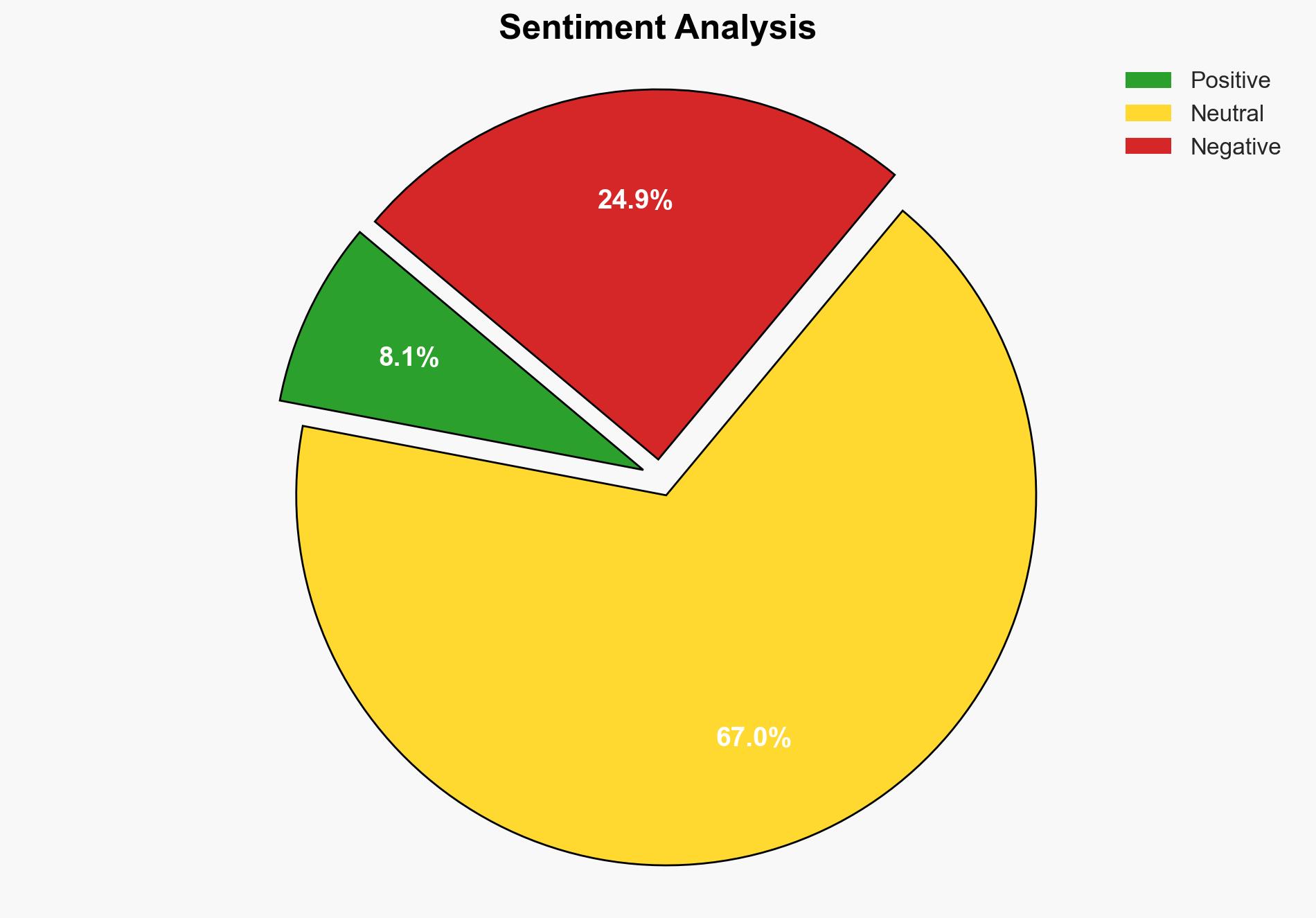Police arrests 300 suspects linked to African cybercrime rings – BleepingComputer
Published on: 2025-03-24
Intelligence Report: Police arrests 300 suspects linked to African cybercrime rings – BleepingComputer
1. BLUF (Bottom Line Up Front)
A coordinated international operation, led by INTERPOL and involving multiple African countries, resulted in the arrest of 300 suspects linked to cybercrime rings. The operation, known as “Operation Red Card,” targeted cross-border cybercriminal networks involved in mobile banking scams, investment fraud, and other illicit activities. The operation underscores the effectiveness of international cooperation in combating cybercrime, which poses significant threats to individuals and communities worldwide.
2. Detailed Analysis
The following structured analytic techniques have been applied for this analysis:
General Analysis
The arrests were part of a broader initiative to dismantle cybercrime networks operating across Africa. Authorities from countries such as Benin, Côte d’Ivoire, Nigeria, Rwanda, South Africa, Togo, and Zambia participated in the operation. Key tactics employed by these networks included the use of malicious links to install malware, SIM card fraud, and social engineering scams. The operation also highlighted the role of private sector partners, including Group-IB, Kaspersky, and Trend Micro, in providing critical intelligence and technical support.
3. Implications and Strategic Risks
The operation reveals several strategic risks and implications:
- Cybercrime networks are increasingly sophisticated, utilizing advanced techniques such as malware and social engineering to exploit victims.
- The transnational nature of these networks poses challenges to law enforcement and requires enhanced international collaboration.
- There is a risk of economic disruption and loss of public trust in digital financial systems due to widespread cybercrime activities.
- National security and regional stability could be compromised if cybercriminal activities are not effectively countered.
4. Recommendations and Outlook
Recommendations:
- Enhance international cooperation and intelligence sharing to effectively combat transnational cybercrime.
- Invest in advanced cybersecurity technologies and training for law enforcement agencies.
- Implement stricter regulatory frameworks to monitor and control digital financial transactions.
- Promote public awareness campaigns to educate individuals and businesses about cyber threats and preventive measures.
Outlook:
Best-case scenario: Continued international collaboration leads to the dismantling of major cybercrime networks, reducing the incidence of cybercrime and enhancing global cybersecurity.
Worst-case scenario: Cybercrime networks adapt to law enforcement tactics, leading to an increase in sophisticated cyberattacks and significant economic and security challenges.
Most likely outcome: Incremental progress in combating cybercrime through sustained international efforts, with periodic disruptions of major networks.
5. Key Individuals and Entities
The report highlights the involvement of international and regional law enforcement agencies, private sector partners, and cybercriminal networks. Notable individuals mentioned include Neal Jetton, who emphasized the importance of international cooperation in combating cybercrime.




